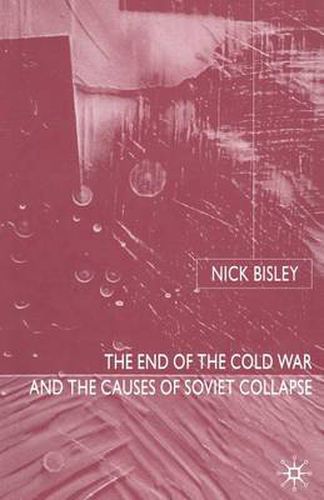Readings Newsletter
Become a Readings Member to make your shopping experience even easier.
Sign in or sign up for free!
You’re not far away from qualifying for FREE standard shipping within Australia
You’ve qualified for FREE standard shipping within Australia
The cart is loading…






This title is printed to order. This book may have been self-published. If so, we cannot guarantee the quality of the content. In the main most books will have gone through the editing process however some may not. We therefore suggest that you be aware of this before ordering this book. If in doubt check either the author or publisher’s details as we are unable to accept any returns unless they are faulty. Please contact us if you have any questions.
Soviet efforts to end the Cold War were intended to help revitalize the USSR. Instead, Nick Bisley argues, they contributed crucially to its collapse. Using historical-sociological theory, The End of the Cold War and the Causes of Soviet Collapse shows that international confrontation had been an important element of Soviet rule and that the retreat from this confrontational posture weakened institutional-functional aspects of the state. This played a vital role in making the USSR vulnerable to the forces of economic crisis, elite fragmentation and nationalism which ultimately caused its collapse.
$9.00 standard shipping within Australia
FREE standard shipping within Australia for orders over $100.00
Express & International shipping calculated at checkout
This title is printed to order. This book may have been self-published. If so, we cannot guarantee the quality of the content. In the main most books will have gone through the editing process however some may not. We therefore suggest that you be aware of this before ordering this book. If in doubt check either the author or publisher’s details as we are unable to accept any returns unless they are faulty. Please contact us if you have any questions.
Soviet efforts to end the Cold War were intended to help revitalize the USSR. Instead, Nick Bisley argues, they contributed crucially to its collapse. Using historical-sociological theory, The End of the Cold War and the Causes of Soviet Collapse shows that international confrontation had been an important element of Soviet rule and that the retreat from this confrontational posture weakened institutional-functional aspects of the state. This played a vital role in making the USSR vulnerable to the forces of economic crisis, elite fragmentation and nationalism which ultimately caused its collapse.